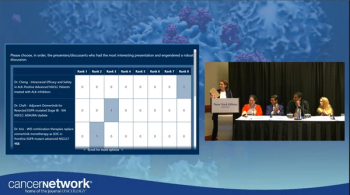
Conclusion of the discussion and award presentation.

Your AI-Trained Oncology Knowledge Connection!


Conclusion of the discussion and award presentation.
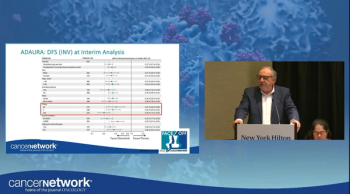
Discussion regarding immunotherapy alone or in combination with chemotherapy for patients with NSCLC that are PD-L1 >50%.
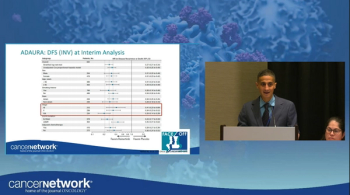
Discussion on the treatment for borderline resectable patients with NSCLC.
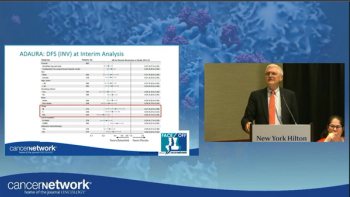
Osimertinib monotherapy as the standard of treatment for frontline EGFR mutant advanced NSCLC will be replaced by combination therapies.
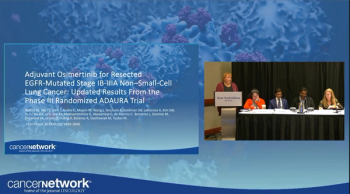
EGFR-mutated stage IB-IIIA non-small cell lung carcinoma that has been removed and treated with adjuvant osimertinib.
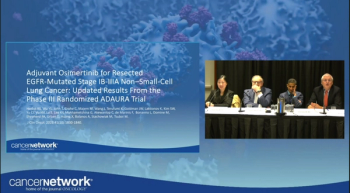
Results of phase 3 ALTA-1L study comparing crizotinib with Brigatinib in advanced ALK-positive non-small cell lung cancer
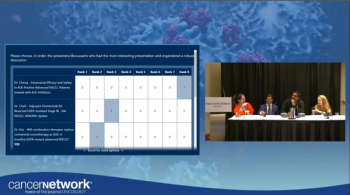
An outline of the debate, the speakers, and the basic guidelines to support the program.

As part of our coverage of the 2014 ASCO Annual Meeting, we discuss chemotherapy's curative role in treating lung cancer.

Drs. Basche and Kelly presentan excellent comprehensivereview of the treatment ofnon–small-cell lung cancer in olderpersons. Articles such as this, whichfocus on the older patient, are of paramountimportance for several reasons.First, cancer is a disease ofaging, with an 11-fold increased incidenceand a 16-fold increase in cancer-related mortality among patientsover age 65 compared to those under65.[1] Second, the population is aging,and in the year 2030, approximately22% will be over 65.[1] Third,data on older cancer patients are limitedsecondary to an underrepresentationof this population in clinicaltrials.[2,3] Based on these facts, acomprehensive review of the availabledata is important, especially toguide future research.

In his article, Dr. Grunberg charts the history of our understanding of chemotherapy-induced nausea and vomiting, and the discovery and development of drugs for its prevention. He places appropriate emphasis on the serotonin (5-HT3) antagonists-notably, ondansetron, granisetron, and dolasetron-which have revolutionized the field over the past decade.

In the United States, an estimated 178,000 new cases of lung cancer will occur in 1997, accounting for 13% of cancer diagnoses and 29% of all cancer deaths.[1] The majority of these deaths will be due to metastatic non-small-cell lung cancer. Cisplatin (Platinol), vindesine (Eldisine), vinblastine, ifosfamide (Ifex), and mitomycin (Mutamycin) demonstrate response rates of 15% or higher in previously untreated patients (Table 1)

Published: October 1st 2002 | Updated:

Published: July 1st 1997 | Updated:

Published: January 1st 2003 | Updated:

Published: May 29th 2014 | Updated: